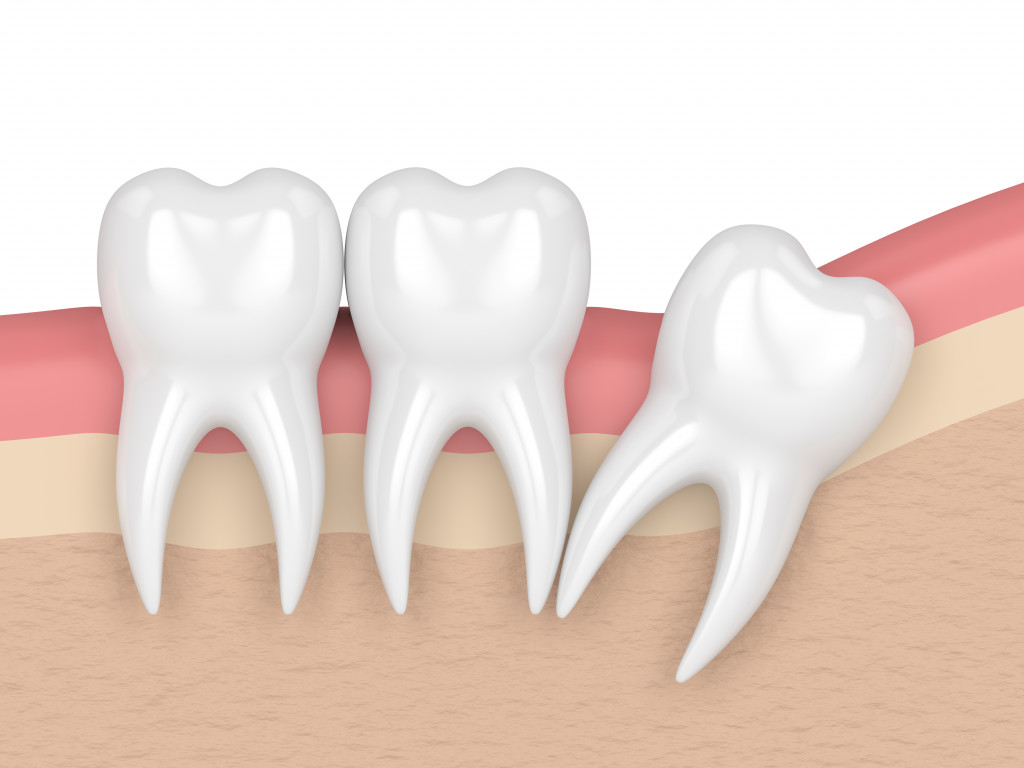The thought of having surgery can be daunting, but sometimes it is necessary to maintain good oral health. One such surgery is wisdom teeth extraction. But what exactly are wisdom teeth, and why would you need to have them removed? Keep reading to learn everything you need about wisdom teeth extraction.
What Are Wisdom Teeth?
Wisdom teeth are the third and final set of molars most people get in their late teens or early twenties. They got their name because they typically appear when people are considered old enough to have gathered a lifetime of wisdom.
While some people never develop wisdom teeth or have no problems with them, others may find that their wisdom teeth crowd or damage existing teeth, cause pain, or become impacted (when they get stuck under the gum line or only partially erupt through the gum). In these cases, surgery may be recommended to remove the wisdom teeth.
Some wisdom teeth may need to be removed because they can cause problems even if they don’t become impacted. For example, wisdom teeth that partially erupt allow bacteria to enter the gum, which can cause infection. Additionally, wisdom teeth that only partially erupt are more challenging to clean, which can lead to cavities or gum disease.
Wisdom Teeth Extraction: The Procedure
If your dentist or orthodontist recommends wisdom teeth extraction, they will refer you to a local oral surgeon. The first step is to schedule a consultation, during which the surgeon will examine your mouth, take X-rays, and discuss your options with you. Many surgeons will also give you the option to have a 3D scan of your mouth, which can provide more detailed information about the position of your wisdom teeth and any potential problems.
If you decide to proceed with the procedure, the next step is scheduling the surgery. Wisdom teeth extractions are typically done as outpatient procedures, so you won’t have to stay overnight in the hospital. While some schedules may allow you to have the surgery and go home the same day, others may require you to stay for a few hours after the procedure to ensure that you don’t have any complications from the anesthesia.
During the procedure, you will be given local anesthesia to numb the area around your wisdom teeth and maybe even sedation if you’re particularly anxious about the surgery. Once you’re numb/sedated, the surgeon will make an incision in your gums and remove any bone blocking access to the tooth. Then they will loosen the tooth and remove it from your mouth.
Afterward, your surgeon will place gauze over the empty sockets and have you bite down on it to help stop any bleeding. They may also prescribe pain medication and antibiotics as you recover from surgery.

The Cost of Wisdom Teeth Extraction
While the cost of wisdom teeth extraction will vary depending on your individual insurance plan, the American Dental Association (ADA) estimates that the average cost per wisdom tooth is between $200 and $700, depending on whether or not the tooth is impacted.
To get an idea of how much your insurance will cover, check your policy or call your insurer and ask about “oral surgery” or “extraction benefits.” Remember that you may have to pay a deductible, copay, or coinsurance for the procedure. You can also ask the oral surgeon’s office if they offer financing options to help make the cost of wisdom teeth extraction more manageable.
Recovery From Wisdom Teeth Extraction Surgery
Most people recover from wisdom teeth extraction within a few days with no major complications. However, taking it easy and giving yourself time to rest and heal properly is still important. Here are a few things you can do to help ensure a smooth recovery:
– Take any prescribed pain medication as directed
– Use ice packs on your face for 20 minutes at a time every few hours
– Eat soft foods like soup, yogurt, applesauce, etc., for a few days
– Avoid using straws for at least 24 hours after surgery
– Brush your teeth gently with a soft-bristled toothbrush
– Rinse your mouth with salt water several times per day
If you experience any severe pain, swelling, fever, excessive bleeding, or other complications after surgery, be sure to contact your oral surgeon right away. You should also call if you have any questions or concerns about your recovery. Some people may experience “dry sockets” after wisdom teeth extraction, a condition where the blood clot that forms in the empty socket becomes dislodged. This can cause severe pain, so it’s essential to seek treatment if you think you may have a dry socket.
Wisdom teeth extractions are pretty common procedures that can help prevent future oral health problems. If you’re considering having your wisdom teeth removed, consult an experienced surgeon who can walk you through the entire process—from start to finish—and help put your mind at ease.


